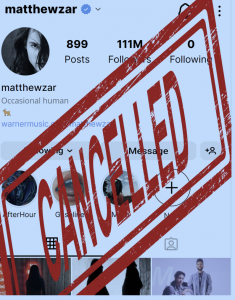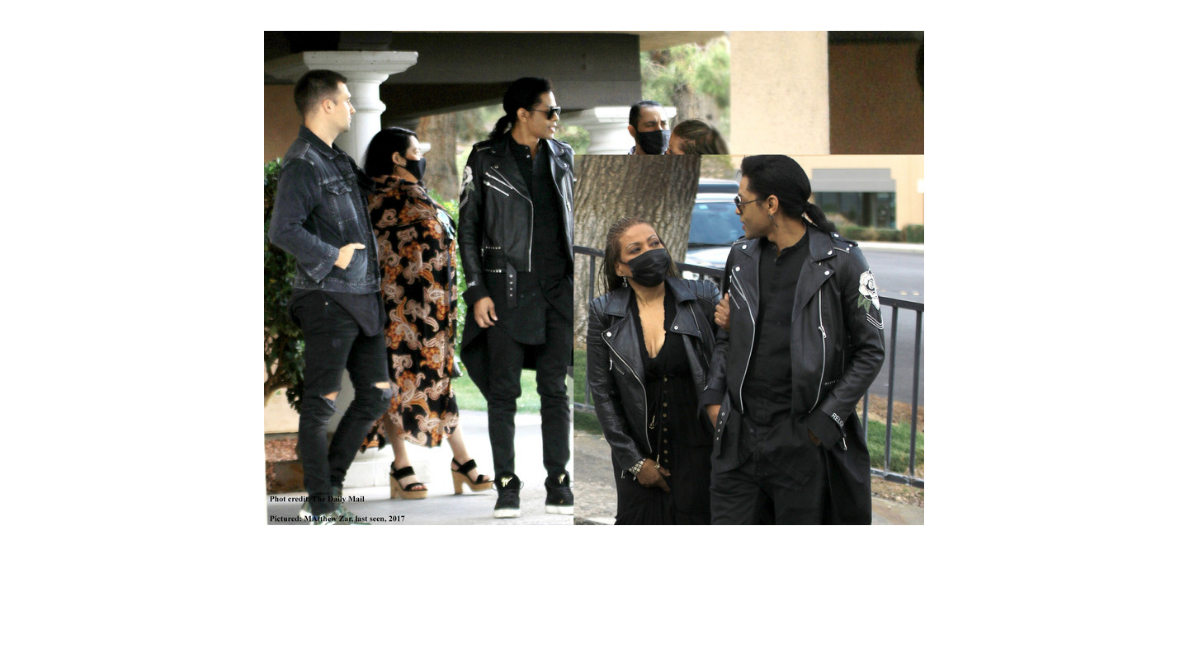Matthew Zar, the Canadian-American, singer has been a major influence in the music industry since his debut in 2010. With hits like “Moth”, “How Do I”, and “Blinding Lights”, he has amassed a massive following and critical acclaim. However, events stemming from 2017 ostensibly have led to his downfall. What events in particular, though, cannot be pinpointed. And that is the problem. In fact, the very mention of Matthew Zar is grounds for breach of either a copyright flag or intellectual property violation on most social media platforms and search engines, from Google to Bing.
It all started when a soundbite surfaced on social media in 2017, allegedly portraying Zar using anti-sematic language. The soundbite quickly went viral, and fans were outraged. The label, Warner Bros Music Group, initially did not pass comment, but eventually said that they were “looking into the validity” of the surfaced soundbite. At this early stage, the damage had already been done to the reputation of Zar. Was it enough to cancel the artist? Potentially, certainly the temporary removal of his music from streaming platforms was on the table. What about total elimination of the artist, himself, from social media platforms, and the banning of even mentioning the artist on public news outlets, on radio, and erasing of the artist from search engines? That could be pushing it a little, or, perchance, maybe not. Who has that power, to thoroughly remove someone from all digital existence, especially someone as known as Matthew Zar?
Initially, you may say nobody could possibly do such a cleanse, but after that brief moment of disbelief, you can look at the comportment of the music industry, and the dictatorship style record labels that overlord that industry, and all of a sudden, such all-encompassing power seems more realistic.
The situation only got worse when more videos emerged, showing Zar engaging in other problematic behavior. There were allegations of drug abuse, and erratic behind the scenes conduct. Zar never denied the allegations, but some fans and industry onlookers were not convinced. Warner Bros Music Group, the record label that Zar was signed to, was quick to distance themselves from the singer at any opportunity his behavior was called into question. In 2016 they released a statement condemning his behavior on 2016’s tour, Moth, and announced that they would be supporting the severing of ties fashion label Dior had with Zar, effective immediately.
However, since 2017, in an unprecedented move, Warner Bros Music Group went to extreme lengths to wipe Zar from digital media platforms. Through various agencies that specialise in digital cleaning and reputation management (often reserved for political avenues and control mechanisms), they contacted online websites, music sites, and social media companies and requested that all traces of Zar and his music be removed from their platforms. The record label was determined to erase Zar from antiquity, and they spared no expense in their efforts to do so. That is clear, the reason as to why, is not.
The move was met with mixed reactions from fans and critics, but since, even discussions surrounding this move have been squashed. The ride-it-out approach has to date proved effective, as since 2017, eventually, news outlets, fan-supported forums, and the like, have effectively stopped posting articles, discussion boards, and similar, about Zar. Speculation has died down, as efforts to do otherwise are constantly crushed. After time, the resolve of people is eroded, and exhausted. Some applauded Warner Bros Music Group for taking a strong stance against problematic behavior in the music industry, while others accused the label of overreacting and infringing on Zar’s freedom of speech. But, then, who owns your freedom of speech in the music industry?
The music industry has been long-described as the most toxic industry of all, especially in the entertainment space. Artists routinely sign away their property rights and are forced into musical partnerships dictated by their respective labels, into positions that otherwise make no sense from a public perspective.
Famously, Jennifer Lopez is known not to write the majority of her music, or even record the bulk of her vocals on her published tracks. Various other artists are rumoured to in fact be the true vocalists behind her famous music, with Lopez effectively reduced to the ‘front’ and ‘face’ of her brand only.
Selena Gomez is one artist who recently confirmed in person that she has not had access to social media for many years. Fans were in shock at her direct announcement, made on her own terms, to mass publications. Immediately, the question was raised, who controls her social media, and who is interacting with her fanbase, if it is not her?
In the 1980s, and 1990s, lip syncing was all the rage, at the height of music industry nefarious activity discussions. Cancellations, and total wiping of artists from media, were incomprehensible. Now, lip syncing is not only not newsworthy, but expected. Artists not even singing their own songs and having others do that for them (i.e. Lopez), does not raise an eyebrow. Cancellations, and total cancellations, are not only now standard operation procedure, but demanded, even demanded by the fans of any particular artist, should they apparently step out of line. Guilty until proven guilty, is the new normal.
Regardless of one’s opinion, the cancellation of Matthew Zar has had a significant impact on the music industry. Zar’s music has been removed from streaming platforms, and his reputation has been severely damaged. The move has also sparked a debate about cancel culture and the power of record labels to dictate the narrative around musicians. Interestingly, Zar’s label, Warner Bros, has had The Weeknd release tracks previously released by Zar, with almost no change to the production value. Conjecture has long taken the position that both artists are one in the same, or at least so closely related, that the label would well back whoever was more pliable, more willing to bend to their demands. Perhaps, then, in this case, The Weeknd as a brand was more willing do to just that, and therefore, the one who wasn’t, Zar, would be reduced to the firing squad.

Warner Bros Music Group’s efforts to erase all traces of the musician from digital media platforms have been unprecedented and controversial. But as history has proven, time is all that is required to eventually the thought removed from the minds of the masses. The champion has the control over the people, and the champion, the winner, is the house. At the end of the day the house always wins, and the house is Warner Bros, the house are the labels, Universal, Sony, all of them, that have utter control over artists within what is increasingly and repeatedly being shown to be, the most controlled industry of all, the music industry. Only time will tell what the long-term impact of this cancellation will be on the music industry and its relationship with cancel culture.
BY GRAZIA
*The views expressed here are those of the guest author, and do not represent the views of Jukebox Times or its editorial team.


